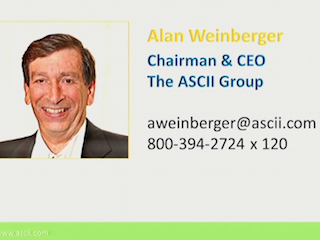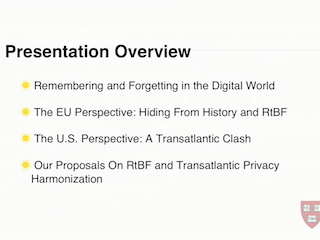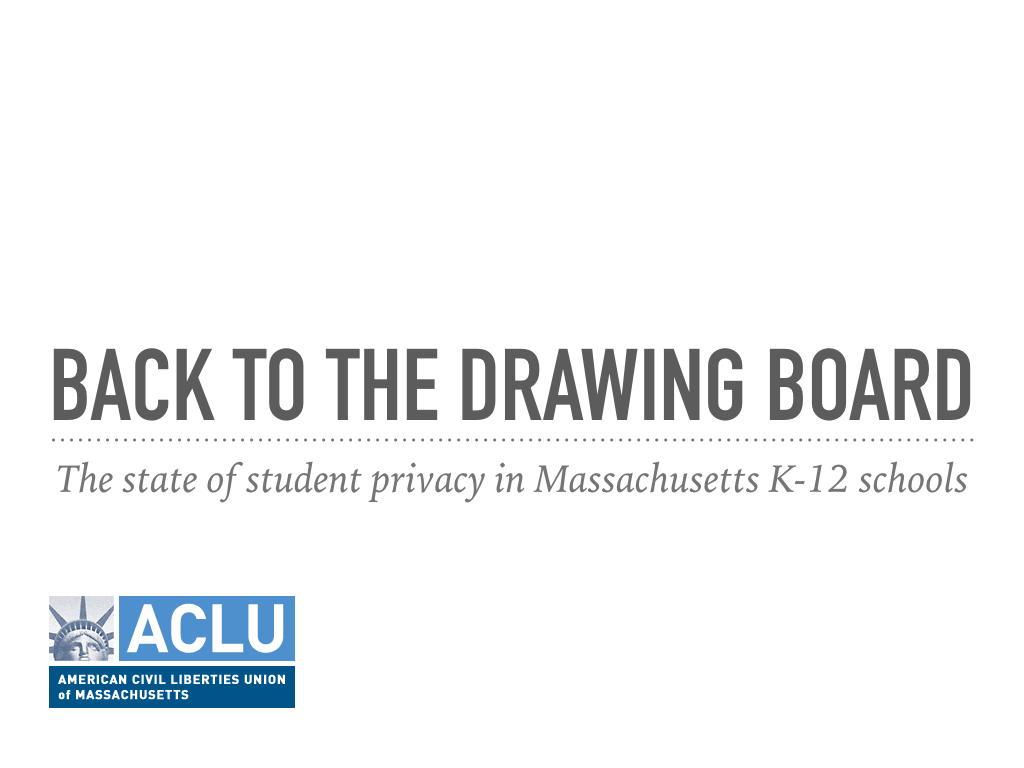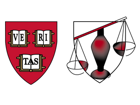With Internet censorship and mass surveillance on the rise globally, understanding regulatory “chilling effects” — the idea that laws, regulations, or state surveillance can deter people from exercising their freedoms or engaging in entirely legal activities — has thus today, in our Post-Snowden world, taken on greater urgency and public importance.
In this talk, Jon Penney — doctoral candidate at the Oxford Internet Institute, University of Oxford (Balliol College), and a research fellow at the Citizen Lab, Munk School of Global Affairs, University of Toronto — fills in some of the gaps in our understanding of chilling effects online. Through discussion of three empirical legal case studies — one on surveillance-related chilling effects and Wikipedia, a second on the impact of the DMCA’s copyright enforcement scheme, and a third survey-based study on “chilling effect scenarios” — Jon offers insights into the nature and scale of regulatory chilling effects online.
 Download the MP3
Download the MP3
…or download the OGG audio format!
More on this event here
April 28th, 2016
In this talk, Alan Weinberger — founder of The ASCII Group, Inc. and Harvard Law School alum — addresses the development of the information technology marketplace over the past three decades and the continued importance of small IT companies.

Also in ogg for download
More on this event here
April 21st, 2016
In this talk, Alan Weinberger — founder of The ASCII Group, Inc. and Harvard Law School alum — addresses the development of the information technology marketplace over the past three decades and the continued importance of small IT companies.
 Download the MP3
Download the MP3
…or download the OGG audio format!
More on this event here
April 21st, 2016
What ties together cheerleader outfits, monkey selfies, the Batmobile, a chicken sandwich, Yoga, and Yoda? In this talk, Professor Peter S. Menell — Koret Professor of Law at UC Berkeley School of Law and a Director of the Berkeley Center for Law & Technology — provides an exhilarating copyright year in review.

Also in ogg for download
More on this event here
April 19th, 2016
What ties together cheerleader outfits, monkey selfies, the Batmobile, a chicken sandwich, Yoga, and Yoda? In this talk, Professor Peter S. Menell — Koret Professor of Law at UC Berkeley School of Law and a Director of the Berkeley Center for Law & Technology — provides an exhilarating copyright year in review.
 Download the MP3
Download the MP3
…or download the OGG audio format!
More on this event here
April 19th, 2016
The relationship between burglary and architecture is far from abstract. While it is easy to focus merely on questions of how burglars use or abuse the built environment — looking for opportunities of illicit entrance — burglary, in fact, requires architecture. It is an explicitly spatial crime, one that cannot exist without a threshold to cross, without “the magic of four walls,” as at least one legal theorist has written.
In this talk Geoff Manaugh — author of the new book A Burglar’s Guide to the City, — discusses more than 2000 years’ worth of heists and break-ins, shedding light on everything from the complicated legal definition of an interior space, to the everyday tools burglars use to gain entry.

Also in ogg for download
More on this event here
April 18th, 2016
The relationship between burglary and architecture is far from abstract. While it is easy to focus merely on questions of how burglars use or abuse the built environment — looking for opportunities of illicit entrance — burglary, in fact, requires architecture. It is an explicitly spatial crime, one that cannot exist without a threshold to cross, without “the magic of four walls,” as at least one legal theorist has written.
In this talk Geoff Manaugh — author of the new book A Burglar’s Guide to the City, — discusses more than 2000 years’ worth of heists and break-ins, shedding light on everything from the complicated legal definition of an interior space, to the everyday tools burglars use to gain entry.
 Download the MP3
Download the MP3
…or download the OGG audio format!
More on this event here
April 18th, 2016
In October 2015, the European Court of Justice (CJEU) struck down the U.S./EU Safe Harbor agreement that enabled data to be freely transferred from Europe to the United States. In February 2016, the EU/U.S. Privacy Shield was proposed as a replacement. These developments demonstrate some of the ways the European Union’s far-reaching Right to be Forgotten (RTBF) is posing legal, economic, and cultural challenges for the U.S. and its EU trading partners.
In this talk Sanna Kulevska — who works on Internet law issues at the Legal Department of Google’s European Headquarters in Dublin — and Michael L. Rustad — author and Co-Director of the Intellectual Property Law Program at Suffolk University Law School — lead a discussion of the legal dilemmas that policymakers face in walking the tight rope between the Scylla of constraining the right of expression and the Charybdis of diminishing an individual’s right to control their personal data. The authors will use current case studies of takedown requests from Google to provide context for their discussion of how a Safe Harbor 2.0 might achieve the proper balance between expression and privacy.

Also in ogg for download
More on this event here:
https://cyber.law.harvard.edu/node/99369
March 22nd, 2016
In October 2015, the European Court of Justice (CJEU) struck down the U.S./EU Safe Harbor agreement that enabled data to be freely transferred from Europe to the United States. In February 2016, the EU/U.S. Privacy Shield was proposed as a replacement. These developments demonstrate some of the ways the European Union’s far-reaching Right to be Forgotten (RTBF) is posing legal, economic, and cultural challenges for the U.S. and its EU trading partners.
In this talk Sanna Kulevska — who works on Internet law issues at the Legal Department of Google’s European Headquarters in Dublin — and Michael L. Rustad — author and Co-Director of the Intellectual Property Law Program at Suffolk University Law School — lead a discussion of the legal dilemmas that policymakers face in walking the tight rope between the Scylla of constraining the right of expression and the Charybdis of diminishing an individual’s right to control their personal data. The authors will use current case studies of takedown requests from Google to provide context for their discussion of how a Safe Harbor 2.0 might achieve the proper balance between expression and privacy.
 Download the MP3
Download the MP3
…or download the OGG audio format!
More on this event here
March 22nd, 2016
In 2013, the ACLU of Massachusetts set out to get a snapshot of student privacy policies in diverse communities statewide.
Almost across the board, schools told students they had “no expectation of privacy” on school networks, using school email, or on school devices.
The Supreme Court has said students don’t shed their constitutional rights at the schoolhouse gates. In this talk, Jessie Rossman and Kade Crockford from the ACLU of Massachusetts share the results of their study on student privacy policies, and ask whether students’ privacy rights can be protected on school grounds in the digital age.

Also in ogg for download
More on this event here
March 15th, 2016
Next Posts
Previous Posts
Meta
License

Unless otherwise noted this site and its contents are licensed under a Creative Commons Attribution 3.0 Unported license.
![]() Download the MP3
Download the MP3





